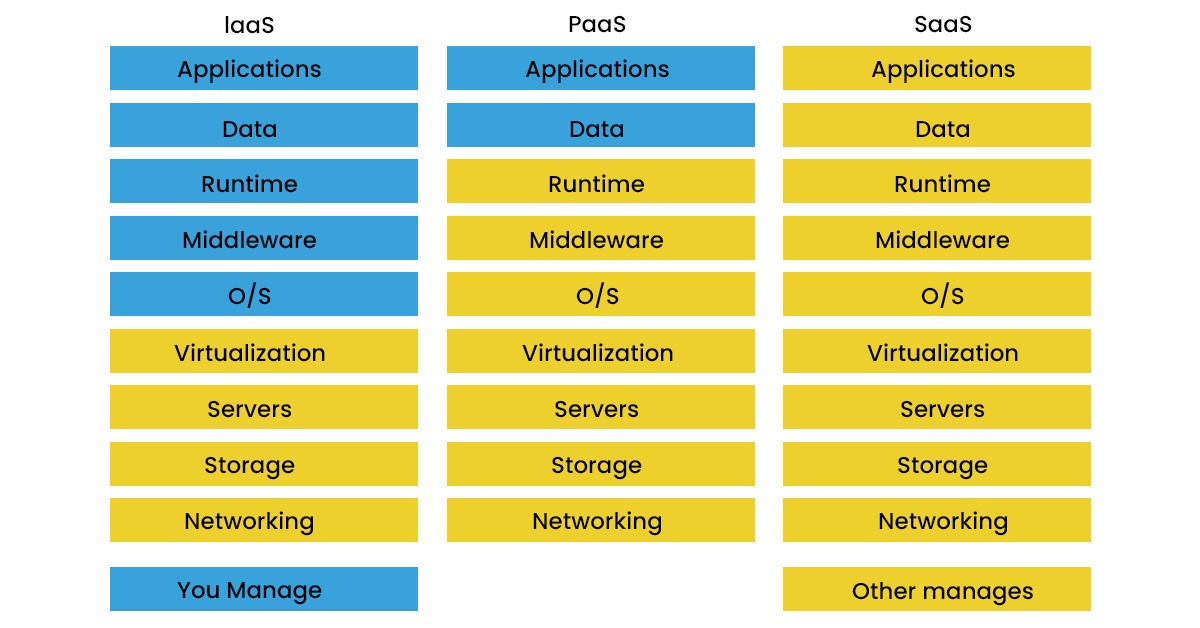Cloud services are changing the way businesses use information technology. Today, cloud services meet virtually every business need related to IT. While there is a wide variety of services, they all have certain common characteristics. In this article, we will take a closer look at cloud services and the benefits they bring to businesses.
Cloud computing services - features and benefits
First, let's review the meaning of cloud computing. In simple terms, it is the practice of using a network of remote servers hosted on the Internet for storing, managing, and processing data. Clouds consist of thousands of servers, located in data centers. Each cloud provides resources for tens of thousands of applications and services used by millions of people simultaneously. Companies rent cloud capacities, and providers charge fees for services depending on consumption. Networks and clusters are the basis for cloud computing.
There are three types of clouds: public, private, and hybrid.
Public cloud is a model that provides access to computing infrastructure via the Internet to an unlimited number of independent clients. The provider owns all hardware and system software resources. Users pay only for the used machine time and disk resources.
Private clouds work similarly, except that the entire computing and system infrastructure belongs to one company. Servers, storage, and network equipment can be located either in your own server room or in a rented data center.
Hybrid cloud is a synergy of the first two concepts and combines both private and public clouds.
With cloud services, organizations eliminate the need to manage infrastructure. Cloud provider is responsible for all actions that keep the business running, such as application processing and exchange, data storage, and management. End users access online resources from anywhere; they can collaborate, manage projects, share and store data without the need for monitoring, maintenance and backup by the IT department.
Types of cloud computing services
Cloud service is online access to remote servers. They can be anywhere in the world, containing millions of computers and programs. To work with the cloud, a normal user only needs a network connection and a client. Server maintenance and configuration are performed by qualified administrators. Their task is to ensure stable operation and user access to servers, cloud components, and services at any time.
There are different offers on the cloud services market that are suitable for different tasks. Below is a list of the most popular and in-demand.
IaaS – Infrastructure-as-a-Service. The user rents a server, storage, and network equipment, chooses, and configures the OS and applications. The provider is only responsible for the equipment itself and the maintenance of the hypervisor. This service is often used by business startups as it is much more cost-effective to rent the hardware than to build IT infrastructure from scratch.
SaaS – Software-as-a-Service. This is a subscription-based software-licensing model. Most often SaaS is a cloud solution, the user accesses the service via a browser or API. In this case, the service provider is entirely responsible for its support. Simply put, the SaaS model implies that the user works with a ready-made solution online. This is, for example, a well-known Google Doc. To work with the service, you do not need any media, drivers, or installations, simply create a Google account, click on the link, and work with texts, tables, and presentations directly in your browser. Plus, other colleagues can work with you on documents, too. SaaS services are used for accounting, customer communications, image editing, CRM, analytics, and ERP.
PaaS – Platform-as-a-Service is a fully-fledged development and deployment environment containing resources for creating and maintaining applications. With PaaS, the user gets a server, storage, and network equipment, and can immediately start working on an application. Unlike IaaS, you have no access to the operating system of the servers; you cannot determine their configuration and load balancing. All these tasks are a provider’s responsibility. Among the examples of PaaS are database systems, AI platforms, and Kubernetes containers. Actually, PaaS refers to any platform for application development.
Cloud4U offers cloud services to help you achieve your business goals quickly and efficiently. Our experts will guide you in planning, designing, and accelerating your cloud deployment.





